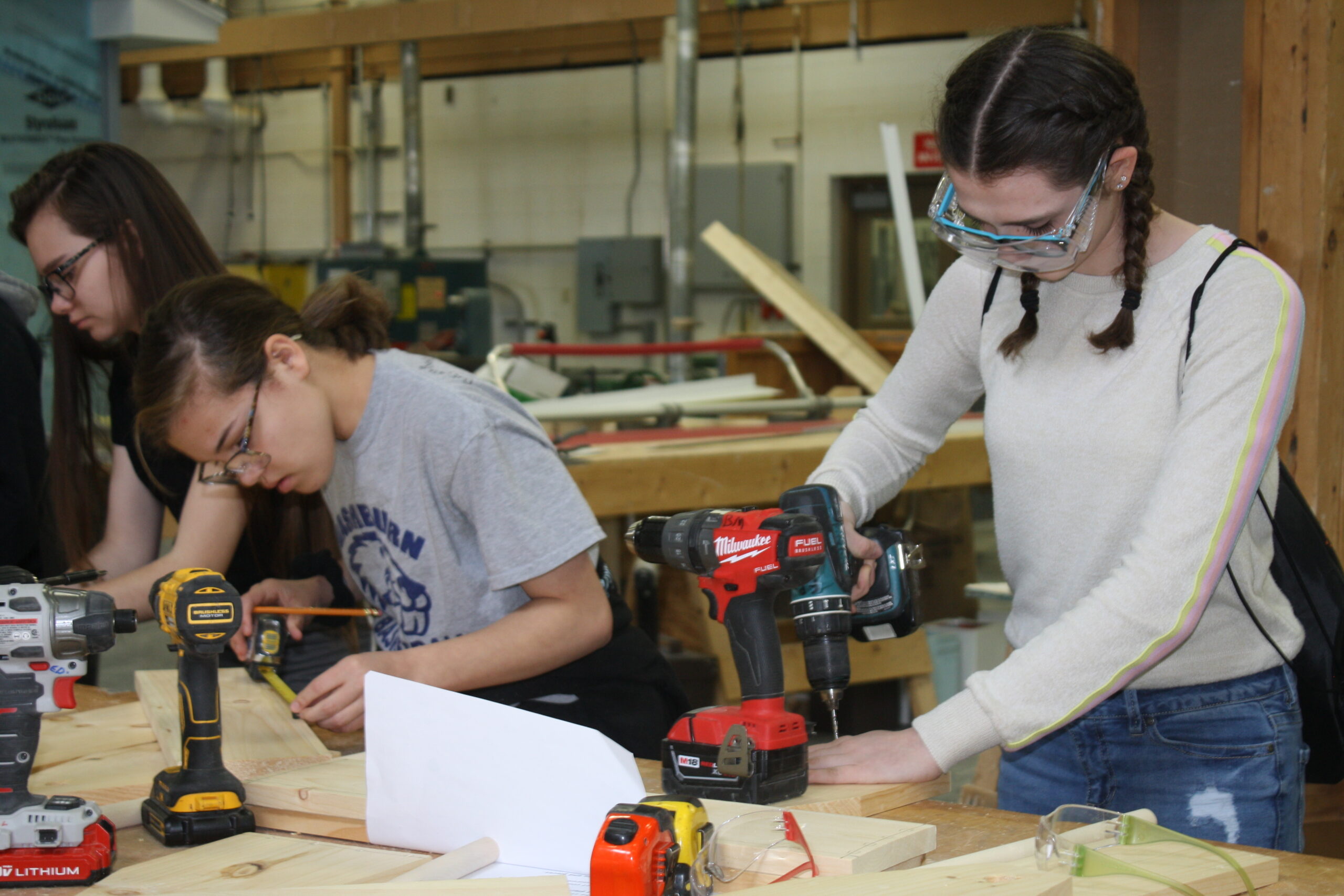
PRESQUE ISLE, Maine — Lauren Calbi, a forester in Aroostook County, remembers when she was in high school and a guidance counselor gave her some bad advice.
“I told her I wanted to take welding. She said, ‘You should take CNA or culinary.’ I was 16 years old when she told me that and I never took a welding class.”
Calbi never took welding but went on to build a successful career in northern Maine’s forest products industry, and shared her experiences along with a panel of other women in the trades at a conference held at Northern Maine Community College and organized by the Aroostook County Action Program.
Women working in male-dominated fields can face sexism and bullying, in addition to the challenges many face as they start education and new jobs. Calbi and other panelists urged women seeking to enter “non-traditional” fields to pursue their passions and opportunities with confidence.
“It’s only gotten better,” Calbi said of her experience since graduating from the University of Maine at Fort Kent’s forestry program in 2013.
Calbi is a now an operations forster with the woodlands division of J.M. Huber, overseeing the harvest and transport work across several states. Previously, she worked with the woodlands division of J.D. Irving on large-scale harvest and tree planting jobs with crews of primarily men.
“A lot of them were old enough to be my grandfather. You have to be humble.”
“You’re always going to have one in every crowd,” she said of the negativity she would encounter. “You’re always going to have a naysayer.”

Emily Green, (left), a 10th grader from Fort Fairfield High School, tries out plasma arc welding techniques during the Totally Trades conference while NMCC welding student Hannah May looks on. (Melissa Lizotte image)
Heidi Plourde, the road and range instructor for NMCC’s commercial driver training program, spoke about her evolution from working as a hairdresser to a commercial truck driver five years ago.
“It was a game changer for me. I have yet to work for less than $20 an hour.”
Before taking the teaching position, she worked as a driver while her husband took on the role of stay-at-home father.
“My boys were 3 and 6 when I did that, and I took a lot of grief for that. But I was a mom getting the job done. My husband was a very competent, capable father. My kids were happy and I was happy.”
Plourde said she has encountered instances of bullying from other truckers while out on the road, but has maintained her confidence and prioritized her safety.
“At truck stops, I walk around like I own the place. I’ve had the stupid comments: ‘Oh did you back that up by yourself?’ Or ‘where’s your husband?’ If they’re a little flippant, you just give it back to them. And you make smart choices. I never ever walk between trucks at night at a truck stop.”
Carol Bell, a consultant working with the Penobscot McCrum company and other farm businesses, shared tips from her varied career that started out in wastewater treatment and has included working in a sporting lodge, a top management role at J.M. Huber, and overseeing a public health program.
“If you ever get a license or a certification, do not let it go. Because that can help you immensely,” Bell said, adding that she received her wastewater operator certification after a program at Eastern Maine Community College and has always maintained it.
At Huber, which runs a large mill in Easton, Bell said that she worked her way up to a management role after working entry-level jobs and learning to run a range of power-equipment.
“Don’t ever feel you can’t do it. Don’t let those things bog you down.”







